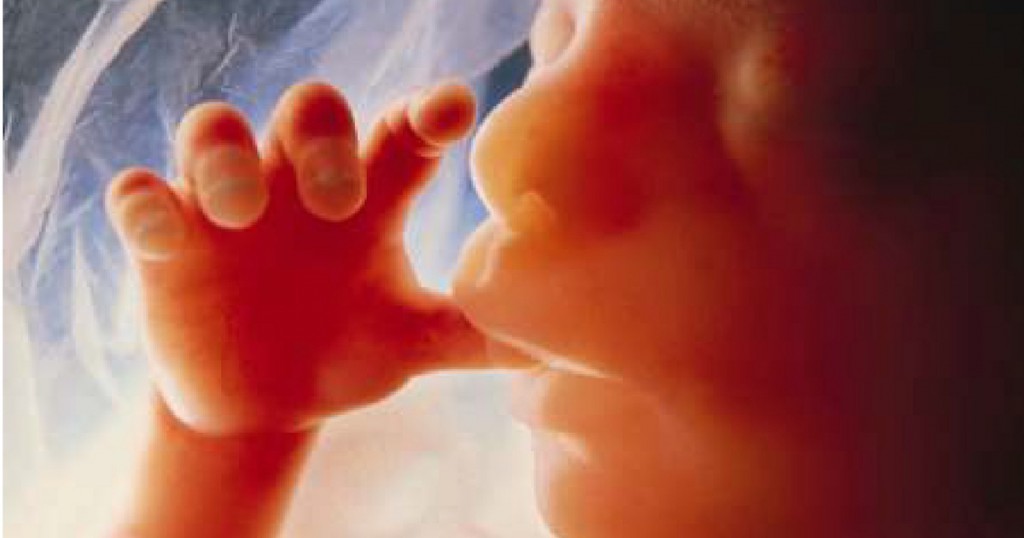Mr. Rozeff:
Given the current uproar about Alabama’s abortion law, I was doing some additional research on the issue and found your blog post (again – I’m a long time reader of LRC and have read many of your pieces).
I think you may have failed to consider some aspects of the issue with your “sensible answer”, which you stated as:
“The question is when does a fetus gain the right to life. A sensible answer as well as one not at variance with actual abortions is that it gains this right when it is capable of surviving outside the womb, with assistance, of course.”
Your position is pretty similar to the “viability” argument made by the Supreme Court of the United States (“SCOTUS”). In Roe v. Wade the Court defined “viable” as: “potentially able to live outside the mother’s womb, albeit with artificial aid.”
Yes, I realize that both you and SCOTUS referred to other “assistance” and/or “artificial aid”. Let’s leave those issues aside for the moment.
I posit that both theories make no sense, logically, or scientifically, when examined in more depth (and neither does Walter Block’s evictionism theory, which is silly… unless she was raped, the mother invited the sperm into her body, and she was almost certainly aware that the express biological purpose of sex is… PREGNANCY and propagation of the species).
I don’t think I’m being unfair to your theory to represent it alternatively as:
“The entire dependency of the fetus on the mother (a human being) to continue living means that the fetus doesn’t have an independent right to live until it is free of that dependency on the human being carrying it”.
Let’s take that concept one step further.
Is a newborn baby entirely dependent on a human being to survive? Hmm… Let’s see what science has to say about it.
Some time ago, I ran a Google search for the terms: “human babies completely helpless at birth”. It returned 1,130,000 results. The first result stated:
“Human babies enter the world utterly dependent on caregivers to tend to their every need. Although newborns of other primate species rely on caregivers, too, human infants are especially helpless because their brains are comparatively underdeveloped. Indeed, by one estimation a human fetus would have to undergo a gestation period of 18 to 21 months instead of the usual nine to be born at a neurological and cognitive development stage comparable to that of a chimpanzee newborn.”
There are many other articles and studies that confirm those facts. They cannot be disputed.
Thus, the only practical difference between a newborn baby and an early stage fetus is that one is inside a human’s body and the other is outside the human’s body. BOTH are UTTERLY DEPENDENT on one (or more) human beings for their continued existence. If the baby is born and no one feeds it, changes it, clothes it, etc…, then that baby will die. Quickly. A baby being deprived of food can die in as soon as 3 days.
That’s probably quicker than the time between a woman deciding to have an abortion and the doctor actually performing the abortion.
Therefore, I posit that the entire concept of “viability” or the “right to live” being based on the idea that neither is applicable until a fetus can survive outside the human being carrying it is ridiculous. Even a two (2) year old toddler cannot survive very long without the care of at least one other human being.
Now, I’ll circle back to other “assistance” or “artificial aid”. Babies and small children cannot survive without human contact and care. And love. It appears that babies will quite literally die – merely from lack of affection – even if you feed and change them. See links:
https://www.digma.com/digma-images/video-scripts/fredericks_experiment.pdf
https://www.historyanswers.co.uk/kings-queens/emperor-frankenstein-the-truth-behind-frederick-ii-of-sicilys-sadistic-science-experiments/
https://stpauls.vxcommunity.com/Issue/Us-Experiment-On-Infants-Withholding-Affection/13213
And babies are better off growing up in prison with their mothers than being raised in an orphanage with little human contact other than feeding and changing.
https://thebrain.mcgill.ca/flash/capsules/histoire_bleu06.html
And note this:
“… premature infants who were massaged for 15 minutes three times a day gained weight 47 percent faster than others who were left alone in their incubators – the usual practice in the past. The massaged infants also showed signs that the nervous system was maturing more rapidly: they became more active than the other babies and more responsive to such things as a face or a rattle.
”The massaged infants did not eat more than the others,” said Tiffany Field, a psychologist at the University of Miami Medical School, who did the study. ”Their weight gain seems due to the effect of contact on their metabolism.”
The infants who were massaged were discharged from the hospital an average of six days earlier than premature infants who were not massaged, saving about $3,000 each in hospital costs, Dr. Field said.
Eight months later, long after their discharge, the massaged infants did better than the infants who were not on tests of mental and motor ability and held on to their advantage in weight, according to a report by Dr. Field in The Journal of Pediatrics.”
https://www.nytimes.com/1988/02/02/science/the-experience-of-touch-research-points-to-a-critical-role.html
Regardless of other “assistance” and “artificial aid”, human care and love are ABSOLUTELY necessary for babies to thrive and even for them to live.
Finally, as to the other “assistance” and “artificial aid”, that creates another conundrum: a moving timeline as advances in technology occur.
100s of years ago, ventilators did not exist. Thus, under Roe v. Wade, a fetus would be legally abortable much later in the pregnancy after ventilators were invented than before they were invented. Future technological advances could theoretically result in the development of devices which allow the development of fetuses outside the mother’s womb from conception and thereafter. If such devices were, in fact, developed, then it would become illegal to abort a fetus at ANY stage of pregnancy because any fetus would become “potentially” able to live outside the mother’s womb with artificial aid.
How do you think the pro-abortion people would feel about that? Under the current “viability” theory, they’re only some technological advances away from seeing abortion made completely illegal. Do you suppose those pro-abortion people will gladly accept the changes such advances may bring? Or will they look for another argument to justify killing their unborn children?
We both know the answer to that. Those people largely don’t care about whether the arguments for their position are valid. They insist on the position and make up arguments to justify it. Typically illogical arguments based on selfishness (“I don’t want to be pregnant, so let’s make me not pregnant. How can I justify that?”).
If babies (and even toddlers) are entirely dependent on human beings to continue existing and living, then arguing that a fetus has no right to live because it is entirely dependent on a human being is an illogical position to take. And being illogical, it creates a slippery slope. If being entirely dependent on a human being for your existence means you have no right to live, then it’s not difficult to argue that newborns have no right to live. Indeed, we’ve already seen some move towards “after-birth abortions”.
For example, from the Journal of Medical Ethics in 2011, “After-birth abortion: why should the baby live?”:
“The moral status of an infant is equivalent to that of a fetus in the sense that both lack those properties that justify the attribution of a right to life to an individual. Both a fetus and a newborn certainly are human beings and potential persons, but neither is a ‘person’ in the sense of ‘subject of a moral right to life’. We take ‘person’ to mean an individual who is capable of attributing to her own existence some (at least) basic value such that being deprived of this existence represents a loss to her…
Those who are only capable of experiencing pain and pleasure (like perhaps fetuses and certainly newborns) have a right not to be inflicted pain. If, in addition to experiencing pain and pleasure, an individual is capable of making any aims (like actual human and non-human persons), she is harmed if she is prevented from accomplishing her aims by being killed. Now, hardly can a newborn be said to have aims, as the future we imagine for it is merely a projection of our minds on its potential lives. It might start having expectations and develop a minimum level of selfawareness at a very early stage, but not in the first days or few weeks after birth…
Although fetuses and newborns are not persons, they are potential persons because they can develop, thanks to their own biological mechanisms, those properties which will make them ‘persons’ in the sense of ‘subjects of a moral right to life’: that is, the point at which they will be able to make aims and appreciate their own life. It might be claimed that someone is harmed because she is prevented from becoming a person capable of appreciating her own being alive. Thus, for example, one might say that we would have been harmed if our mothers had chosen to have an abortion while they were pregnant with us or if they had killed us as soon as we were born. However, whereas you can benefit someone by bringing her into existence (if her life is worth living), it makes no sense to say that someone is harmed by being prevented from becoming an actual person…
If a potential person, like a fetus and a newborn, does not become an actual person, like you and us, then there is neither an actual nor a future person who can be harmed, which means that there is no harm at all. So, if you ask one of us if we would have been harmed, had our parents decided to kill us when we were fetuses or newborns, our answer is ‘no’, because they would have harmed someone who does not exist (the ‘us’ whom you are asking the question), which means no one. And if no one is harmed, then no harm occurred…
The alleged right of individuals (such as fetuses and newborns) to develop their potentiality, which someone defends, is overridden by the interests of actual people (parents, family, society) to pursue their own well-being because, as we have just argued, merely potential people cannot be harmed by not being brought into existence. Actual people’s well-being could be threatened by the new (even if healthy) child requiring energy, money and care which the family might happen to be in short supply of. Sometimes this situation can be prevented through an abortion, but in some other cases this is not possible. In these cases, since non-persons have no moral rights to life, there are no reasons for banning after-birth abortions.”
https://jme.bmj.com/content/medethics/39/5/261.full.pdf
I hope you will thoughtfully consider the above and, if you like, review the article I wrote (linked below) from which I pulled some of the ideas used in my email.










You know, it’s funny. My youngest son was born three months early. He survived nine weeks in NICU and now is a normal, strong and healthy three-year-old. Sounds pretty viable to me.
And yet that whole viability argument is thrown out by the very people who pushed abortion when they say that there should be third-trimester abortions. The truth is, they never cared for viability, just pushing abortion. The Left literally believes that having children is an obstacle to their happiness. They are miserable, evil, and wicked people. Any loophole or compromise they offer is immediately ignored once they get their way.
5
Utilitarianism is a cloyingly evil philosophy, able to befuddle people who should know better.
5
I don’t mind advancing the moral accusation of cowardice here. “Viability” is an anti-standard. Advancing it dialectically is just trying to get the people who already hate you to kill you last.